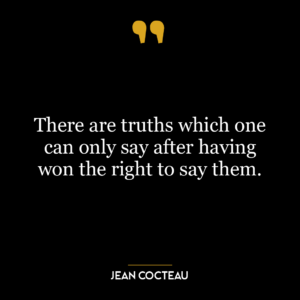The quote “Rightness in our choice of an end is secured by [Moral] Virtue” reflects Aristotle’s belief that our moral virtues guide us in making the right choices towards our goals. In other words, the moral virtue is the compass that guides our decisions to ensure they are ethical and just. It suggests that the correctness or appropriateness of our actions is determined by these virtues.
To elaborate, moral virtue, in Aristotle’s context, refers to a state of character concerned with choice. This is not just about knowing what is right or wrong, but also about feeling and acting accordingly. The ‘rightness’ in our choice of an end implies the ethical value or correctness of our goals. If our goals are guided by moral virtues such as honesty, courage, and justice, then we are more likely to make the right choices that align with these virtues.
Applying this concept to today’s world, we can consider how our personal and societal goals are often influenced by our moral virtues. For instance, if a person values honesty, they will likely make choices that reflect this virtue, such as being transparent in their communication or not engaging in deceitful behaviors. Similarly, a society that values justice will strive to create laws and systems that promote fairness and equality.
In terms of personal development, this idea emphasizes the importance of cultivating moral virtues. It suggests that personal growth is not just about achieving our goals, but also about ensuring these goals align with our ethical values. By developing moral virtues, we can make better choices that not only bring us closer to our goals, but also contribute to our overall character development. This can lead to more fulfilling and meaningful life experiences.
So, Aristotle’s quote is a reminder to always check our goals against our virtues, to ensure that what we are striving for is not only personally fulfilling but also ethically sound.










